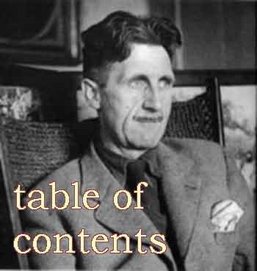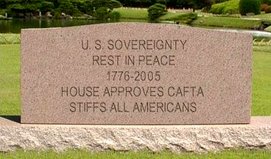 A class with Mr. McLetchie might help our local and state government, you think? Such a conference would be cheaper than a concert with Little Richard, and perhaps help get us some relief from excessive taxation. LOL
A class with Mr. McLetchie might help our local and state government, you think? Such a conference would be cheaper than a concert with Little Richard, and perhaps help get us some relief from excessive taxation. LOLDavid McLetchie: Said to favour a move to autonomy.Picture: Kate Chandler
printer friendly
email articleScottish Tories eye secret weapon of autonomy on tax HAMISH MACDONELL SCOTTISH POLITICAL EDITOR
Key points• Conservatives look to give Scotland 'fiscal autonomy'• Devolved system may lead to tax cuts... • And other powers being transferred to Holyrood
Key quote"We have said that we wish to see councils across the country, in England, Wales and Scotland, raising more of the money they spend, and are considering how this might be done. If it is right to do so for local government, it must be right to look at this for the Scottish parliament as well." - David McLetchie, the leader of the Scottish Tories
Story in full
THE Scottish Tories are secretly exploring radical plans to give Holyrood control over a range of UK taxes, including stamp duty, excise duty and VAT, The Scotsman has learned.
The changes, which would amount to virtual fiscal autonomy for Scotland, will be published before the 2007 election.
Under the proposals, the Scottish Parliament would also be given the scope to raise or reduce income tax more than the three pence in the pound currently specified.
It is understood that devolving control over corporation tax to Holyrood has been examined but dropped because the EU will not allow different rates of corporation tax within single nation-states.
The aim is for the various taxes to be devolved, with the assumption that they would then be cut in Scotland - stimulating growth, attracting business investment and giving Scots more money of their own to spend.
David McLetchie, the leader of the Scottish Tories, hinted at the changes in a major policy speech at the Conservative conference in Blackpool yesterday.
Mr McLetchie said he favoured "greater financial accountability" in principle, but refused to go into any detail.
However, Tory insiders revealed that Mr McLetchie has asked policy officials to examine a whole range of different taxes, to find out what would happen if they were devolved to Scotland.
Such a radical change to the devolution settlement could only be done by Westminster, so the Scottish Tories would likely have to wait for the election of a Conservative government in Westminster before the changes could take place.
It is understood that the Tories intend to go into the 2007 election with a platform of costed tax cuts, which can be achieved under the current powers of devolution. However, they will also include in their manifesto the "aspiration" to go further and will publish details of their plans for more fiscal power for Holyrood, should a Tory government be elected in London.
One senior Tory source said last night: "There is a greater willingness [on behalf of the leadership] to do this than there has been in the past."
If the Tories do go into the 2007 Holyrood elections with a definitive policy of greater fiscal autonomy, it will represent a remarkable transformation for the Scottish party, which vehemently opposed the creation of the Scottish Parliament just eight years ago.
It will also represent a major U-turn for Mr McLetchie, who has been against fiscal autonomy for some time, but now appears to have been won round by some of his colleagues.
The Scottish Tory leader set out the framework for his vision for a tax-cutting policy platform yesterday. He told a fringe meeting in Blackpool: "In principle, Conservatives favour greater financial accountability because it encourages greater financial responsibility.
"We have said that we wish to see councils across the country, in England, Wales and Scotland, raising more of the money they spend, and are considering how this might be done. If it is right to do so for local government, it must be right to look at this for the Scottish parliament as well."
Mr McLetchie stressed that these decisions had to be taken on a UK basis, in cooperation and with the support of the UK Tory Party.
David Davis, the front-runner in the Tory leadership contest, has made it clear to the Scottish party that he would have no problems with such a radical plan for fiscal autonomy.
Mr McLetchie also hinted that the Scottish Tories will call for control over other powers, not just tax, to be handed over to Holyrood.
"Change in the balance of powers between Westminster and the Scottish parliament should certainly not be ruled out," he said.
Mr McLetchie's speech set out the themes of "smaller government" and "lower taxes" which will form the basis of the Conservatives 2007 election campaign.
He said: "The ideological 'public good, private bad' mentality still holds far too much sway in Scotland. The argument should not be about public versus private, but about monopoly versus competition." He said his aim was to get away from the "mindset which clings to the belief that ever higher spending is the only way to solve our social and economic problems".
He added: "We must show that lower taxes are the key to increasing opportunities, particularly for families on low incomes."
Meanwhile, the national leadership contender Ken Clarke warned party activists that success in Scotland was vital if the Conservatives were ever to regain power.








No comments:
Post a Comment